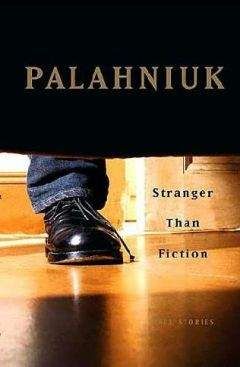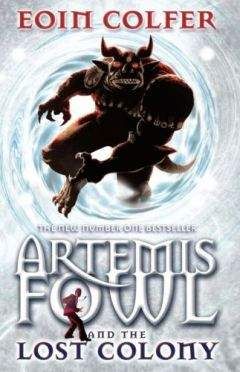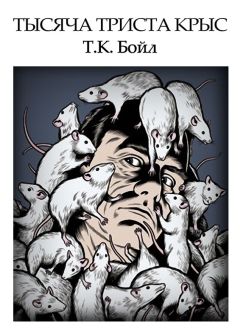Deerskin - Robin McKinley
The smell of the room was musty, shut-up-for-long, many-families-of-mice smelling. Lissar stood for a moment, waiting for her eyes to adjust. By the dim light of the open door, and the memory of the shape and placement of a rough stone chimney on the rear wall, visible over the roof of the wood-pile, she saw the fireplace opposite the door. Perhaps the cold and the imminence of death helped her, for there were no long blank pauses in her thoughts after deciding that seeking this shelter was worth the risk.
She recognized the use of the fireplace, and went over to it, and felt that there was a fire laid; then she calmly and patiently went about the business of feeling for a tinder box. Later she would wonder at her certainty of its existence; the person who had laid the fire might have been expected to carry so precious a thing as a tinder box on his or her person. But it was there for her to find, and she found it after not too many minutes, to one side of the hearth, where there was a small pile of extra wood as well. She braced her weak hand, struck a spark, and lit the fire. It flared up with a smell of mouse nests.
She knelt by it long enough to be sure it would catch, and then stood up and went back to the still-open door, and stared out at the falling snow, feeling more peaceful than she had for weeks; since before she and Ash had gone on their journey. Since before she had begun to fear whatever it was that had happened, that had sent them away. She could remember no more of it than that, but she remembered that much without any gaps, and without any rush of panic. She had come to this small peace within herself, that she would not try to remember, and that therefore her memory's guardians need not drain her small energy store by leaping to defense, leaving her sick with weakness.
This was her life now; it had begun with this journey. "My name is Lissar," she said to the quiet snow; and then she shut the door.
TWELVE
SHE AND ASH SLEPT FOR A VERY LONG TIME. SHE WOKE TO ADD
wood to the fire, and then slept again. They both had fallen down in front of the fire, a luxury so unheard-of that no further questions about their new shelter's possibilities could arise in their minds at first. The floor was hard, and cold, but neither so cold nor so hard (at least not so mercilessly irregularly hard) as the ground they had slept on for many days past.
Lissar dreamed she was melting, that her hair ran in rivers, her fingers and toes were rushing streams, her eyes overflowing pools. And as the sound of water grew wilder and wilder she heard something wilder yet behind it: joy, she thought, the joy of being alive, and she moved in her wet earthy bed to embrace it; but when it came to her it was neither joy nor life but ... she woke, screaming. Ash had sprung to her feet and was looking dazedly around, looking for the bear or the panther, her poor staring ribs pumping her breath like a bellows.
"I'm sorry," said Lissar. "It was only ... a dream." It was slipping away even as she spoke; she could no longer remember what it was about, only that it had been horrible. The horror welled up again, but no images accompanied it; just blank, unthinking terror and revulsion. She shuddered with the strength of it, and put out a hand to seize a stick of wood, felt the dull prick of its bark against her palm gratefully. She tossed it into the fire and thrust her face so near that her eyes wept with the heat.
Ash sat down again and snuggled up against Lissar's back, with her head on her shoulder, as she had done before the hearth in their old... "No!" said Lissar.
"Whatever it is-it is over with. Ash and I have escaped, and are free." Her words sounded hollow, but the defiance in them: drove the horror back a few paces, and she lay down again and fell again into sleep.
It was daylight for a while, and then dark, and then daylight again. And then Lissar began to recognize that she was waking up for good, that she was desperately thirsty, that she was so hungry that her head hurt and there was a bitter taste in her mouth, and that she needed to relieve herself. She dragged herself reluctantly to a sitting position. Ash lay in a tiny round knot beside her, near enough that Lissar could feel the heat rising off her fine-haired body, and watch the short hairs gently separate and then lie softly together again with the rise and fall of her breathing.
Lissar was never quite unsurprised at how small a sleeping creature Ash could make of herself when she was curled up her tightest, with her long limbs folded expertly into the hollow of her belly and her flexible spine curved almost into a circle.
Lissar staggered upright, wakened with dreadful thoroughness by the pain in her hip, went to the door and opened it. A little heap of snow immediately fell in on the floor. Snow lay, in a beautiful, smooth sweep of eye-bewildering white (she blinked, closed one eye), across the little clearing that the hut stood in, and disappeared into the blue shadows under the trees. The sun was shining, the view was mesmerizing, the more so by her own exhaustion and the knowledge that she and Ash would not have survived the first night of the blizzard if Ash had not found this haven for them.
The weight of this knowledge seemed to hold her in place like the stiff, resisting weight of ceremonial robes ... she frowned. What an odd thought: ceremonial robes.
Heavy with gold braid they had been, with glints of colored stones.
She looked down at her filthy, flannel-clad self, and wished to laugh; but could not. Pain and hunger had stolen her lucidity; and she an herbalist's apprentice.
Almost she could remember her master's name: R ... Rinnol. That was it. Lissar had been lucky, for she had not wanted an apprentice; but Lissar was a friend of her niece, and Rinnol had agreed, very grudgingly at first, to take her on.
The snow was over her knees beyond the lip of roof that sheltered the hut's door and narrow wooden porch. She waded, barefoot, only just past the corner of the hut before she squatted; she would have to see if the hut yielded anything she could use for boots. Ash emerged and bore her company at the hut-corner; when she was standing again her ears and tail came up and for a moment.Lissar thought she would go bounding through the snow like a puppy. But then the tail and the head dropped again, and she sighed, and almost crept back inside the little house. Only then did Lissar notice how dull and flat her once-shining coat looked in the sunlight.
A memory came to her, of chasing her beautiful dog around a walled garden; she was herself running freely, neither hip hurt, her eyes focussed easily, adaptably, without thought, and she stretched out both whole, strong arms to make a snatch at Ash as she spun around a corner and leaped entirely over her person. Lissar let the memory fade. She did not wish to remember more; the guardian panic hovered, watchful, in one corner of her mind; she did not want it disturbed.
She went back indoors. Ash was sitting, unhappy head hanging, by the dying fire.
She opened and closed her mouth, almost thoughtfully, as if trying to remember something-or trying to rid herself of a memory of something. She looked at Lissar beseechingly.
Lissar looked around the tiny room. A table stood against one wall with a tiny shuttered window over it; a bed was shoved against the wall the wood-pile stood on the other side of. The door and the fireplace took the other two walls. Next to the door were cupboards. Under the table stood a bucket. Lissar took it outdoors and began shovelling snow into it. She had to stop often, because her fingers burned and turned red, and her feet went almost instantly burning-cold, without the comfort of numbness.
A bucket of snow warmed by the hearth yielded a depth of water about equal to the length of one finger joint. She drank one sip-lowering the bucket after just the one sip was one of the hardest things she had ever done-and gave the rest to Ash. Then she went outdoors and began digging up more snow.
She was trembling with weariness by the time neither she nor Ash was thirsty any more. She had tried eating snow, but it hurt her throat and made her head and stomach ache. There was a little water left in the bucket when she sat down in front of the fire and almost fell asleep again, but she knew she did not dare to, not yet. She needed to investigate the cupboard by the door. Fearfully she opened it, for she knew that their lives lay within it, and she dreaded to find it empty.
Stale brown flour. Some kind of meal, spotted with small dark flecks, with legs.
Dried meat, old and black and lightly fuzzed over with a greenish fungus. Some tiny, wizened, almost black roundish items she recognized by smell as onions and apples.
Some squashy potatoes bristling with pale dry sprouts with brownish tips. Tears of relief blurred her eyes. It occurred to her to wonder whom the hut was for, and whether its usual occupant-or the person who had stocked it, perhaps for just such an occasion as being snowbound-might return and be angry at the trespassers. But she could not think about imaginary owners for long. Her head swam; she gripped the cupboard door and rested her throbbing head against it, feeling the hot tears creep slowly down her face, tasting the salt on her lips. She stood just breathing in the amazing aroma of food. Of life continuing.
Ash stood up slowly and stiffly and walked over to stand beside her, her nose pointed hopefully at the cupboard, and a new light was in her eyes.
Lissar's meat-broth was dull, the broth watery and the meat tough, her flatbread a soggy, crumbly, burnt disaster; but she and Ash ate every scrap and drank every drop, and fell asleep again. Lissar woke up suddenly and violently in the middle of the night, when her abused bowels declared that they could no longer cope; but she ran for the door with better strength than she had had since ... before her life began.
She knew that she was not accustomed to much snow, but as she did not think of her old life or of her future she did not think about the snow either, beyond the fact that it was there. It was there, and it went on not only being there but adding to itself, till it lay halfway up the window over the table in their hut, which was the direction of the prevailing wind; Lissar opened the door very cautiously each morning till she could see how much of it was going immediately to fall in on her.
She never did move her latrine farther than the corner of the hut because she could not shovel very far or very effectively with only one fully useful arm and an aching hip. Fortunately the hut had produced a shovel-and a broom, for sweeping what fell indoors upon the opening of the door back out again-and boots, mittens, hat and coat, all of the latter enormous.
The clothing had been in a bin beneath the bed, along with several blankets and pillows. The bedframe itself bore nothing but a straw mattress, smelling rather strongly of a small wild animal. The bed troubled Lissar, though she did not know why, and she had only to recall the existence of the shadowy, never-quite-motionless panic-monster in the corner of her mind to decide not to investigate why this, or the other things that namelessly disturbed her, might be so. She kept the pillows and blankets tidily rolled up in the bin, and at night she took them out and spread them in front of the fireplace.
Ash occasionally slept in the bed for a little while, but usually she woke herself up by rootling little hollows in the canvas covered mousiness with her nose, and when she decided she actually wanted to go to sleep she joined Lissar on the floor. She also caught several of the resident mice and one squirrel.
She ate the first one or two-Lissar heard the crack of her jaws and then the brisk, immediate sound of swallowing-but one evening when she left Lissar's side in a leap, Lissar heard the sound of pounce-and-snap but no ensuing gulp. Missed, she thought, not moving from her place facing the fire; but then a long pointed face thrust itself over her shoulder, a long pointed face with a little furry morsel dangling from its jaws.
"Thank you," Lissar said gravely, taking it by the tail a little hesitantly. At least it was already dead, she thought. She had never cleaned or dressed out anything; she was aware she had some idea how it was done, but not a very large or very clear idea.... Did dressing out apply to something as small as a mouse? She didn't know.
Perhaps it would be good practice. Good for what?
She stood up, still carrying Ash's contribution to their food supply, and took it over to the table. She picked up the smaller of the two knives that were another of the hut's valuable resources. The knife was so old, and had been sharpened so often, that the blade was barely wider than a finger, and curved abruptly in from the use-dark horn handle. Their onion and potato broth that night had splintered mouse fragments in it.
After a certain inevitable amount of experimentation, both Lissar's soup and her bread improved. She had found herbs in the food cupboard upon further exploration, as musty as everything else was, but still capable of imparting flavor; and she set her bread-sponge out for a day to catch the wild yeast before she kneaded it and baked it; Rinnol had taught her about this.
There were also further shapes and smells in the bins where she had first found apples and onions and potatoes that were undoubtedly other vegetables, and while she and Ash ate them, she never did know what most of them were. Some grew recognizable upon scrubbing clean, like carrots, even old wrinkly rusty-orange ones.
But there was a carrot-shaped thing that, when cut, was creamy-colored inside, and which disintegrated in the soup-bucket much more quickly than carrots, which she did not know, although the taste seemed vaguely familiar. Some things, like a long round brown root that had to stew most of a day before it was soft enough to eat, she had never met before. There were also a few bags of astonishingly dry and rot-free grains of various sizes and shapes, round or oval or folded, tiny or not so tiny, all of which she and Ash ate, although the husks of some of them caught unpleasantly in the teeth and the throat. And, best of all, there was a big rough sack of salt: salt for bread and salt for soup, salt for any and everything, lots of it, more than she could imagine using. The salt-sack made her feel rich.




